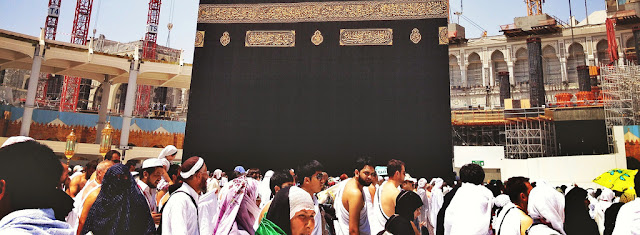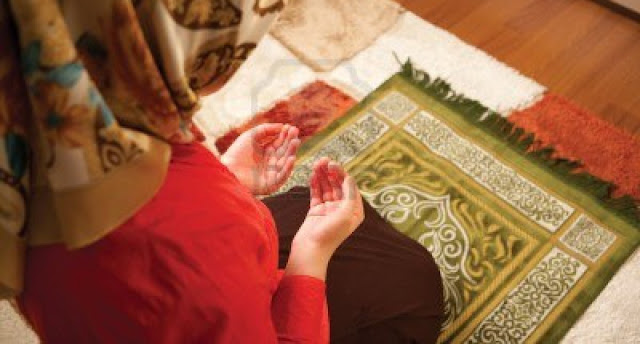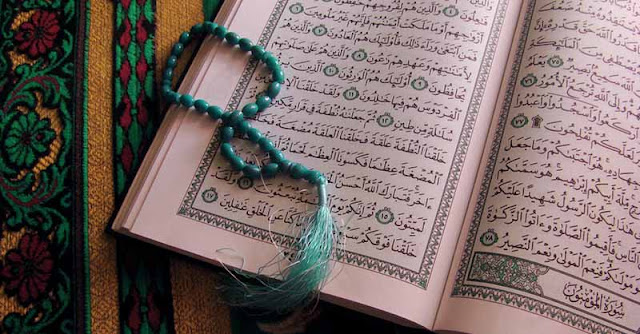Ramadan Umrah: My Journey
My wish was finally coming true. I had been on
Umrah
before when I was younger but for the past year, I had really wanted to
go for the last ten days of Ramadan and it was now finally happening. I
would spend three nights in Medinah and from there go to Makkah for 8
nights. I was excited, but also worried if my trip and Ibadat would be
as rewarding as I had hoped. The Holy Land awaited me.
Alhamdulillah,
I have many experiences and many stories from the trip to recollect but
I will try to share some of the most meaningful moments…
Jannat Al-Baqi
We first arrived in
Madinah and
made arrangement to visit the Prophet’s Mosque. As we were being driven
from the airport, I couldn’t wait for my first glance of the Prophet’s
Mosque. But before that, we drove past Jannat Al-Baqi: the graveyard of
the Sahabah. It was truly incredible to know that some of the greatest
men and women that have ever lived were resting a few hundred metres
from me. I was wishing I could have been born at that time and lived
with both the Prophet and the Sahabah; what an amazing life that would
have been to be in the company of the greatest people to have ever
stepped foot on this planet! However, Allah always does what is best for
the believer so this must be the best time for me to be around.
The Prophet’s Mosque
…And
then I saw the Al-Masjid Al-Nabawi, the Prophet’s mosque. Breathtaking
is all I can think of to describe it. This was where Islam was first
established in the community and I was standing on the very soil on
which our beloved Prophet began to implement Islam in all aspects of
society; I felt so blessed.
My first few days were unbelievable.
This place was so detached from the rest of the world; you could
literally tell how everyone felt like they were in a different world –
there was no stress from business, family or anything else. The only
thing on everyone’s mind was their Rabb and gaining the blessings of
Ramadan.
Masjid Al-Quba
Ziyarat
(visiting sites related to Prophet Muhammad) was a lot of fun. The most
memorable Ziyarat locations for me were firstly Masjid Al-Quba: the
first mosque in Islam. Just to pray Salah on the same soil gave me
goosebumps. I was in awe as I looked at the walls; I could just imagine
the believers building this mosque brick by brick with the Prophet
helping them. Once again, I wished I was one of the Sahabah and could
help in the construction of such a meaningful building. I pray that one
day I can contribute significantly to the building of a mosque in this
world.
Battlefield of Uhud
The second was the battlefield
of Uhud, where Hamza (radhiAllahu ‘anhu) gave his life fighting for
Islam and in which the Prophet’s orders to the archers were abandoned,
ultimately leading to a disaster ending to the battle. I think the
reason why these two places had the greatest impact on me was because I
have grown up, like many of you have, watching ‘The Message’ where both
events are depicted in this film, and so it was easier for me to imagine
what happened. Just being there really touched my soul
Breaking The Fast
One of the highlights of going to
Umrah during Ramadan
was undoubtedly breaking the fast. Right after Asr, hundreds of
volunteers roll out plastic mats and start putting dates, yoghurt,
bread, nuts and water out for the people. After a long day, with the
sun’s heat, to be looking at food for such a long time and not to be
allowed to eat it…subhanAllah, such is a test from Allah! I tried to
keep my concentration on making dua and reading as much Quran as I could
but even then it was quite difficult. However, this feeling would
disappear as Maghrib would approach; there was a buzz around the mosque
as everyone would get ready to break their fast. Some were making one
last dua’, some were finishing off a surah, and some were quietly
chatting with their neighbours, but everyone felt that brotherhood
amongst themselves and that’s what made it so special. As the Adhan
would be called, we were all reminded that we were doing this for one
purpose: for the sake of Allah.
Desert Travel
Travelling
from Medinah to Makkah by car really put into perspective the hardships
the Sahabah and Prophet had to endure while travelling to spread the
word of Islam. The rocky mountains, the scorching heat, and the plain
desert land with nothing in sight could have only been an extremely
arduous journey. It was the anticipation of seeing the Kabah that was
eating away at me; it was the excitement as well as the nervousness
(which I will explain later).
Ka’bah
Upon seeing the
Kabah, I could not help but start crying. I had seen it when I visited
Makkah before but for a strange and unexplainable reason, the emotions
were as raw as ever. I felt at home. It is difficult to describe the
exact feelings that one has when facing the house of their God, only
someone who has been there will be able to understand exactly what I
mean. The first thing we did was to perform our
Umrah
which was a remarkable experience. I had never seen anything like it
before; crowds were intently focused on their Ibadat as they went around
the Kabah and ran between the two hills. That’s exactly what I was
trying to do: just focus on every word I was saying, understand and
really feel the depth of all that I was asking from God. My legs were
aching and the soles of my feet hardening but I kept on going and was
giving encouragement to my mum at the same time. During the
Umrah,
I began to feel very scared and remember the Day of Judgment as all I
could see around me were people asking for forgiveness. Surely this must
be like that Day, but the difference being that we won’t be able to
change anything then unlike in our current state. This realization shook
me and I began to repeatedly ask myself, “Am I doing enough to save
myself from Hellfire and earn Allah’s Mercy?” I pray that I can one day
positively answer this question…
Taraweeh Prayers
Another highlight of coming to
Makkah/Medina
during Ramadan is the Taraweeh prayers as well as the Qiyam prayers
during the last ten nights. The Tawareeh prayers start right after
Maghrib and last for about two hours, and the Qiyam prayers including
the Witr start at 1:00am and again last for another two hours. These
prayers are spiritually uplifting – to stand in congregation with your
brothers facing the Qiblah while listening to some of the world’s best
Qaris is mesmerising! Standing for so long is not easy especially if you
weren’t able to stand on the carpet and instead have to stand on the
marble, but subhanAllah it is all worth it when you think of where you
are, what you’re doing, and how much reward you could be earning.
Ramadan 27th & 29th
The masjid is always packed with people but on the 27
th
night, my mother and I made the mistake of going back to the hotel
between Maghrib and Isha because just within twenty minutes, all of the
entrances to the Masjid were blocked off and the roads were full of
people coming from all directions. We ended up having to pray our
Taraweeh prayers in the middle of the roads, with ambulances driving in
between the rows of people, and with no space and nowhere to move or go.
Everybody was stuck but it was exciting and both terrifying as there
was every likelihood that we could be crushed.
I have never seen so many people than on both the 27
th and 29
th
night of Ramadan. As far as my vision could go, all I could see were
people. At times, my mother and I felt suffocated with the number of
people around us; just to walk a hundred metres, it would take half an
hour. Therefore, there was no real point of moving but since my mother
was ill at the time, we had to regularly go to the bathroom, resulting
in being squashed from all directions as well as being worried of
getting separated. Alhamdulillah though, we managed to stick together,
even when my mum disappeared into a huge crowd as I was able to find her
within a few minutes.
Adhans
One of the most special
moments on my visit was standing in front of the Kabah during both the
Fajr and Maghrib Adhan. I purposefully walked up to the front of the
rows near the time of the Adhan so that I would be one of those who
prayed in the walkways and had a full view of the Kabah. It was easily
one of the best moments of my life hearing the Adhan while looking at
the House of God – again it was just one of those indescribable moments
that cannot be matched by anything in this world. My heart just felt so
at peace and as I write this, I wish could be there right now.
The Journey Home
Two
weeks quickly flew by and before I knew it, I was on my way to Jeddah
to fly back to London. From what I have written and from what people
have heard from me, the visit seems to have appeared to be rather
perfect, but unfortunately, there were many things that went wrong such
as feeling ill, stifled by the sheer number of people, and being let
down by our tour organisers. However, this was fine because nothing ever
works out to be perfect and especially since there are always lessons
to learn. However, my biggest hardship was not the physical tribulation
that I faced; it was rather a test of my faith…
During my visit. I
was repeatedly attacked by Shaitan who made me question many core
elements of our faith such as, ‘Why do we worship God?’, ‘Why do we pray
Salat five times a day?’, and ‘Why do we praise God?’ Astaghfirullah (I
seek refuge in Allah). These thoughts were continually circling my mind
and it made me very depressed at times because I was in the most holy
place on Earth but I still having these silly thoughts in my mind that
were disabling me from being able to fully focus on my Ibadat at all
times.
It was strange as these questions never troubled me before,
and only later was I slightly comforted as someone told me when I came
back that Allah tests people in different ways and this was just one of
my tests. My heart only came to rest when I came back as I spoke to
people and read up and found the answers which I always knew and
understood deep down. Therefore, although this was the best trip I have
ever made, it was also the most difficult and I was very worried that my
Iman was decreasing in such a place.
Reflections
So what
have I gained from this visit? Have I become closer to my Deen through
this visit? The troubling thoughts were definitely taxing, but as there
is always something good in what happens, I pray that by going over
these questions, I have reaffirmed my faith, strengthened my Iman, and
allowed me to answer questions that many Non-Muslims pose. By reflecting
on the feelings and emotions I experienced while I was there, I felt
like I have become closer to Allah. Usually after people come back from
Umrah/
Hajj,
it is a time of deep reflection and improvement but truth be told, it
had not been anywhere near enough as I would have liked, especially
since I still had those thoughts circulating in mind, and as I was
continuously preoccupied with work and charity. However, now that my
responsibilities have reduced and I recollect my thoughts on paper, I
realize that I must now look to my ultimate responsibility: to become a
better Muslim.
Of course this journey does not end on the
aeroplane, but is one that is continuous until I go back to my Lord and
one that I hope to continue to learn from and improve myself inshAllah.
Visiting the Holy Land during Ramadan was truly amazing and I pray to
Allah to be granted this opportunity again for it is an experience I
will never forget.
“So, it is a must for the souls to
be nurtured by way of tests, and to be severely tested during the course
of the battle between truth and falsehood with fear and hardship, and
with hunger and decrease in wealth and life and fruits. This testing is a
necessity so that the believer can give his share of what his belief
requires; so that it becomes dear to him in accordance with that he
gives for its sake of sacrifice and burden; so that it becomes dear to
him in accordance with what he is willing to give for its sake!
Source: mymonline.org












